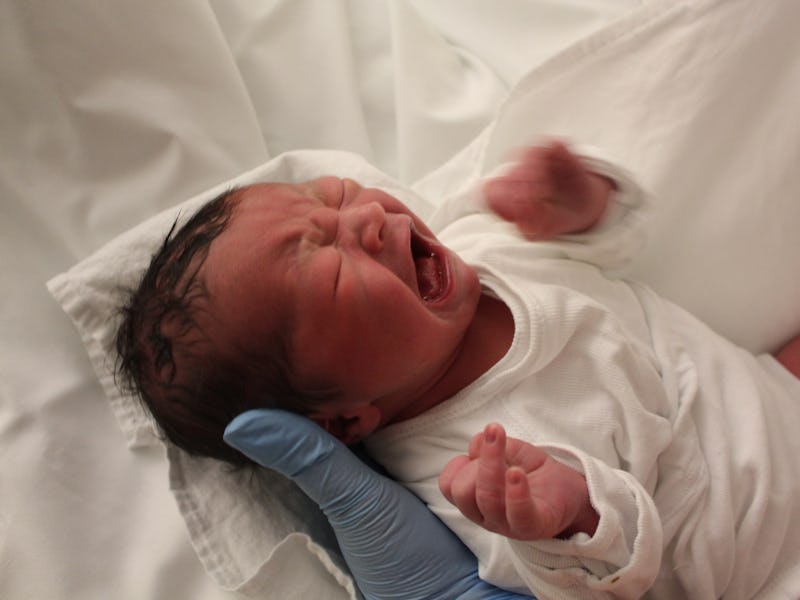Climate Change Is Literally a Boner Killer
A warming planet is going to mean fewer babies, and that could be a big problem.

Baby-making just isn’t as appealing in a heat wave, according to new research.
“The reduction in population growth from climate change is a very bad thing because it reduces people’s opportunities to have the family size that is right for them,” lead author Alan Barreca tells Inverse in an email.
Economists from Tulane University, UC Santa Barbara, and University of Central Florida wrote the working paper, which analyzes 80 years of birth-rate data as they relate to temperature.
Their finding? Eight-to-ten months after a heat wave, the number of babies drops sharply. A single additional hot day over 80 degrees can result in 1,165 fewer births in the United States, according to the paper.
When the weather cools, people do seem to make up for lost time. There’s a slight bump in births 11-13 months after a heat wave, but only enough to make up for about a third of the loses.
This could be good news for the planet — according to one study having just one baby will cause 9441 metric tons of carbon dioxide in future emissions, almost six times an average person’s lifetime carbon footprint.
But that’s not a good reason to ignore the problem, explains Barreca. “This strikes me as, not only unfair, but an inefficient solution to our social and environmental problems. Climate change itself is better addressed with policies, like cap and trade, aimed at directly reducing greenhouse gas emissions at their source, e.g., electricity generation.
“With respect to population growth, increased access to birth control and educational and labor-market opportunities for women are likely to have a much larger impact than temperature on birth rates without reducing people’s opportunities to have the family size that is right for them.
“It’s not a good idea to rely on climate change to correct itself by curbing birth rates and reducing the number of polluting people on this planet — it’s like cutting off our toes because our shoes don’t fit. There are better ways to deal with this issue. We should go buy some new ‘shoes’ (read: pollution policies). Sure, it will cost us a little — but they will look real nice.”
Declining birth rates could also be bad news for the economy. If the population isn’t making babies fast enough to replace itself, it puts a big strain on pension plans and other social programs, like Social Security. Even China has backed off its long-held one child policy in response to the pressures of an aging population.
If climate change sees U.S. births decline, the government would likely respond with policies that encourage more baby-making and/or more immigration.
There’s another unintended cost for babies born into a warming planet. Those babies conceived in the fall end up mostly born in the hot summer, which is associated with worse health outcomes. Risk of low-weight births could go up by half a percent, the authors calculate.
The impact of heat waves on births declined around the 1970s, suggesting that increasing use of air conditioners mitigated the effects. They suggest that improving access to cheap air conditioning could help reduce the impacts of climate change on fertility.
“However, the costs of increased air conditioning usage include increased greenhouse gas emissions, underscoring the fundamental dilemma in mitigating climate change impacts using energy-intensive technologies,” the authors write.